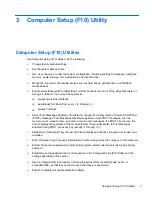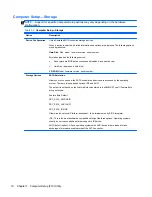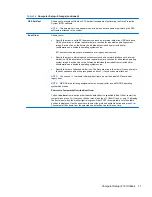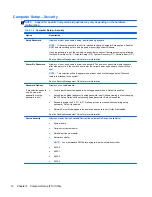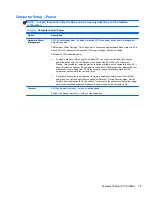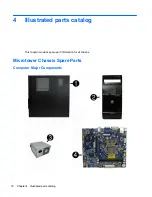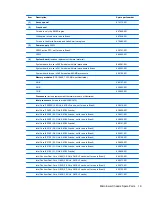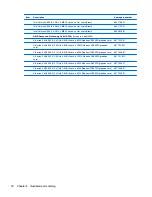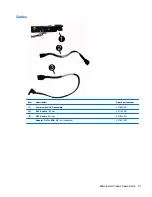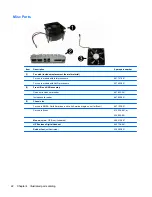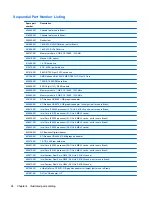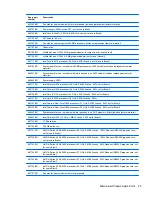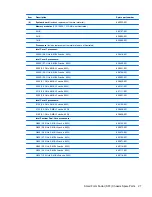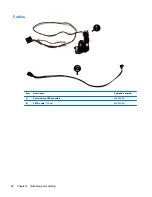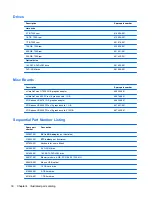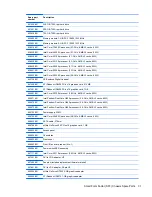
Computer Setup—Advanced
NOTE:
Support for specific Computer Setup options may vary depending on the hardware
configuration.
Table 3-6
Computer Setup—Advanced (for advanced users)
Option
Heading
Power-On Options
Allows you to set:
●
POST messages (enable/disable). Default is disabled.
●
After Power Loss (off/on/previous state). Default is Power off. Setting this option to:
◦
Power off—causes the computer to remain powered off when power is restored.
◦
Power on—causes the computer to power on automatically as soon as power is
restored.
◦
Previous state—causes the computer to power on automatically as soon as power is
restored, if it was on when power was lost.
NOTE:
If you turn off power to the computer using the switch on a power strip, you will not be
able to use the suspend/sleep feature or the Remote Management features.
●
POST Delay (in seconds). Enabling this feature will add a user-specified delay to the POST
process. This delay is sometimes needed for hard disks on some PCI cards that spin up very
slowly, so slowly that they are not ready to boot by the time POST is finished. The POST
delay also gives you more time to select
F10
to enter Computer (F10) Setup. Default is
None.
BIOS Power-On
Allows you to set the computer to turn on automatically at a time you specify.
Bus Options
On some models, allows you to enable or disable:
●
PCI SERR# Generation. Default is enabled.
●
PCI VGA Palette Snooping, which sets the VGA palette snooping bit in PCI configuration
space; only needed when more than one graphics controller is installed. Default is disabled.
Device Options
Allows you to set:
●
Num Lock State at Power-On (off/on). Default is off.
●
Integrated Video (enable/disable). Use this option to disable the integrated video controller
when another video controller is present in the system. Default is enabled.
●
Multi-Processor (enable/disable). Use this option to disable multi-processor support under
the OS. Default is enabled.
●
NIC PXE Option ROM Download (PXE, iSCSI, disabled). The BIOS contains an embedded
NIC option ROM to allow the unit to boot through the network to a PXE server. This is
typically used to download a corporate image to a hard drive. The NIC option ROM takes up
memory space below 1MB commonly referred to as DOS Compatibility Hole (DCH) space.
This space is limited. This F10 option will allow users to disable the downloading of this
embedded NIC option ROM thus giving more DCH space for additional PCI cards which may
need option ROM space. The default will be to have the NIC option-ROM-enabled. Default is
PXE.
16
Chapter 3 Computer Setup (F10) Utility
Summary of Contents for A7L26UT#ABA
Page 4: ...iv About This Book ...
Page 10: ...x ...






